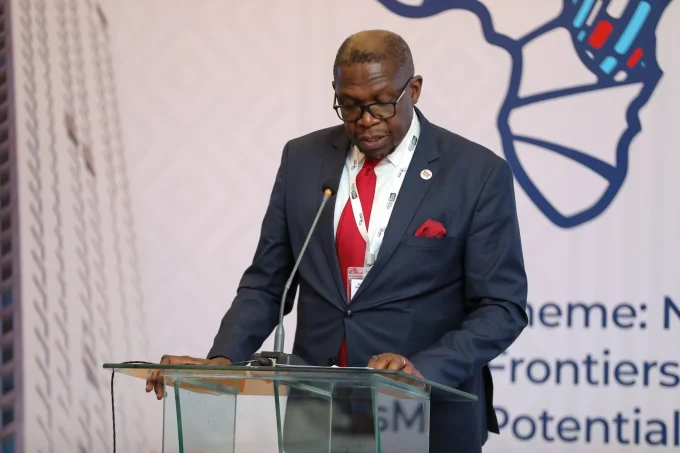In a country where millions of Kenyans grapple with low incomes, the salaries of the country’s top corporate executives often lives tongues wagging. At the very top of this hierarchy sit the chief executives of companies listed at the Nairobi Securities Exchange (NSE) – commanding pay packages that routinely hit the hundreds of millions of shillings.
Recent financial disclosures for the fiscal year 2024/25 shed light on the startling remuneration figures among Kenya’s top bosses. It is agreed that Kenya’s top CEOs are delivering results — and earning accordingly — but the stark contrast with average workers highlights deep inequality.
The surge in executive pay is stirring debate across boardrooms and social media alike. While companies such as Safaricom and leading banks point to improved performance and shareholder returns as justifications, critics argue that such hefty packages clash with the economic struggles of many Kenyan workers. From bonus declines at Equity —where CEO James Mwangi declined his payout — to slippery reporting of director compensation at several listed firms, governance and equity concerns loom large.
Gideon Muriuki – Coop Bank
Leading the pack is Dr Gideon Muriuki, the long-serving Managing Director and CEO of Co-operative Bank, who took home a staggering Ksh 475 million — a sum composed of a Ksh 172.5 million salary and a Ksh 302.5 million bonus. This places his monthly equivalent earnings at nearly Ksh 40 million, making him not just the best-paid CEO in Kenya, but one of the most handsomely compensated corporate leaders on the continent.
Peter Ndegwa – Safaricom
Close behind him is Dr Peter Ndegwa, the CEO of Safaricom, who earned Ksh 294 million. His package is a composite of base pay of Ksh 98.7 million, a performance bonus Ksh 116.7 million), non-cash benefits worth Ksh 33.5 million) and share-based awards worth Ksh 45.3 million. Ndegwa’s pay increased significantly following Safaricom’s recovery in profitability after initial setbacks from its Ethiopian expansion. The firm posted an 11% growth in net profit, reaching Ksh 69.8 billion in the year ending March 2025.
Paul Russo & James Mwangi
Mr Paul Russo of KCB Group and James Mwangi of Equity Bank round off the top four, earning Ksh 250 million and Ksh 214 million respectively. In all these cases, performance bonuses and deferred share-based payments now form a significant portion of overall executive pay.
These figures are not merely eye-catching — they evidently show growing divide in Kenya’s individual economics. A report by the Kenya National Bureau of Statistics estimates that the average formal sector worker earns around Ksh 3.7 million annually, putting the CEO-to-worker pay ratio at between 26 to 50 times.
Such disparities have become a point of public debate, creating a class division in Kenya that has blossomed into political template of the haves and the have-nots.
In boardrooms and shareholder reports, these salaries are often justified as the price of attracting and retaining top talent. Performance-based incentives, they argue, align the interests of executives with those of shareholders.
> Media House Linked to Uhuru Kenyatta Announces Mass Layoff
In the case of Muriuki, Co-operative Bank posted a 9.8% growth in net profit, reaching Ksh 25.5 billion in 2024, while maintaining one of the lowest loan default rates in the sector. Likewise, Ndegwa’s stewardship has seen Safaricom stabilize in Ethiopia while defending its dominance in Kenya’s telecom sector.
But these justifications do not always sit well with the public — or even some shareholders. The total bonuses paid to CEOs of the top 10 companies listed on the Nairobi Securities Exchange (NSE) fell by Ksh 82 million compared to the previous year, due to flat profit margins across several firms. That dip has raised questions about whether Kenya’s executive pay is truly aligned with value creation.
“Leadership must be measured not just by profit, but by impact,” says Margaret Wambui, a Nairobi-based governance consultant. “We see executives taking home hundreds of millions while customers face high bank charges, call drops, or limited credit access. Something’s out of balance.”
The concern isn’t merely moral; it’s structural. Executive pay levels have ripple effects across the economy. When vast wealth is concentrated at the top, income mobility, staff morale, and workplace fairness can suffer.
> Leaders of Top Diaspora Remittance Companies Operating in Kenya
Globally, there is a growing movement towards transparency and accountability in executive compensation. In South Africa, companies are now required to publish CEO-to-worker pay ratios. In the United States, investor pressure has forced some firms to adopt performance clawback clauses — where bonuses can be returned if future results disappoint. Kenya may not be far behind, especially as citizens grow more vocal about inequality and governance.
The role of a CEO — particularly in large, complex, and heavily regulated sectors like banking or telecoms — is high-stakes and high-pressure. The responsibility is enormous. But as the public becomes more attuned to issues of fairness, justice, and sustainability, boards will increasingly be expected to justify not just the results, but the rewards.
Indeed, Kenya’s highest-earning CEOs are symbols of both corporate ambition and growing inequality. Their earnings underscore the rewards of leadership in a booming private sector — but also spark difficult questions about fairness, merit, and how value is truly measured. As the gap between corner offices and common workers widens, the conversation about who gets what, and why, can no longer be confined to the boardroom.













Leave a comment